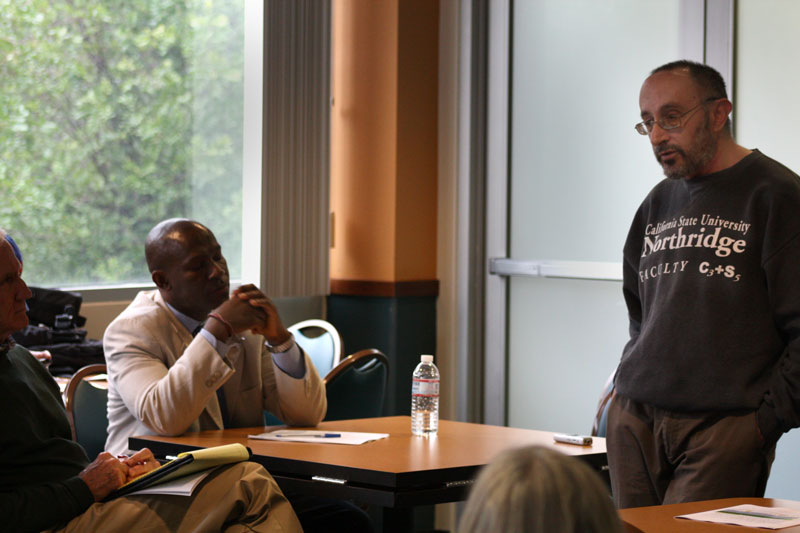
Administration is planning to cut enrollment of full-time students by another 11 percent and increase student fees to 10 percent, said Harry Hellenbrand, provost and vice president for academic affairs.
Hellenbrand held two open dialogue meetings with faculty addressing the current and future budget situation at CSUN and the California State University system.
“Anyone who thinks we can go back to the fee ratio of 15 percent tuition and 85 percent state budget is just dreaming,” Hellenbrand said.
Hellenbrand added that the possibility of no furloughs would mean a budget problem of $23.2 million for next year.
“We are planning 50 percent higher than the rest of the universities,” Hellenbrand said. “We have a wildcard — an eight million dollar carry-over for next year. We have to wait and see what the system allows us to do. Anything we do will have frustration in the process.”
CSUN administration officials have plans to cut enrollment in a variety of ways, including stricter enforcement on enrollment requirements.
“We could grow rather well,” Hellenbrand said. “We have a plan in place to increase non-residents.”
The non-resident increase could bring the campus $20 million, while the student fee increase could bring in another $8 million, Hellenbrand said.
Hellenbrand said the university plans to save money by eliminating unnecessary technology expenditures.
“In two to five years, we want to get out of the lab business and rely on wireless and mobile devices,” he said. “A laptop on Amazon costs $400, while it costs $1,000 to bolt and set up a (lab) computer. We need to get at what we do best — not hardware, not software, but pedagogical instruction.”
Tin Ngyun, 21, a psychology major, was not at the event but after learning of the cuts and elimination of technology said the budget crisis does not bother him.
“I’m pretty much apathetic toward the situation,” said Ngyun. “I’m not dismissive, just apathetic.”
According to a handout distributed by Hellenbrand, designing 250-plus seats in science and performing arts buildings is another way to save money by eliminating small group and independent studies.
Professor Temma Willey, who attended the event, said she is hopeful about the future.
“It’s hard to say something definite about a moving target,” Willey said. “I am hopeful about our future because I know that all the faculty and administration are seriously trying to deal with the problem.”





